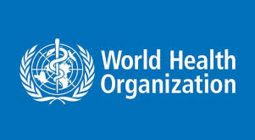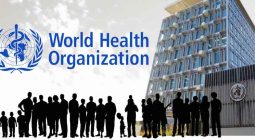Today July 28 is the World Hepatitis Day.
It is being observed each year on July 28 to raise awareness of viral hepatitis, which causes inflammation of the liver that leads to severe disease and liver cancer.
Hepatitis is a disease related term used to describe inflammation of the liver caused by several viruses, chemicals, drugs, alcohol, certain genetic disorders or by an overactive immune system.
The world is currently facing a new outbreak of various types of Hepatitis viruses: A,B,C,D, and E.
According to World Health Organization (WHO), in 2019 alone, an estimated 78 000 deaths occurred worldwide due to complications of acute hepatitis A to E infections.
Global efforts prioritize the elimination of the hepatitis infections B, C and D infections. Unlike acute viral hepatitis, these three infections cause chronic hepatitis that lasts for several decades and culminate in over 1 million deaths per year from cirrhosis and liver cancer.
These three types of chronic hepatitis infections are responsible for over 95% of hepatitis deaths.
On World Hepatitis Day 2022, WHO is highlighting the need for bringing hepatitis care closer to the primary health facilities and communities so that people have better access to treatment and care, no matter what type of hepatitis they may have.
WHO aims to achieve hepatitis elimination by 2030.
Hepatitis A is mostly a food-borne illness and can be spread through contaminated water and unwashed food.
Hepatitis B can be transmitted through exposure to contaminated blood, needles, syringes or bodily fluids and from mother to baby.
Hepatitis C is only transmitted through infected blood or from mother to newborn during childbirth.
Hepatitis D is only found in people who are also infected with hepatitis B.
Hepatitis E is predominantly found in Africa, Asia and South America due to taken in excess or in very high doses.
Meanwhile, WHO called for making quality hepatitis care affordable, accessible, and integrated into primary health care, to bring these lifesaving services closer to people and accelerate efforts to eliminate viral hepatitis in the WHO South-East Asia Region by 2030.
“Viral hepatitis is preventable and treatable. Yet, an estimated 60 million people live with chronic hepatitis B and about 10.5 million with chronic hepatitis C in our Region. Our efforts to eliminate viral hepatitis can only succeed if we ensure everyone everywhere has access to hepatitis services,” said Dr Poonam Khetrapal Singh, Regional Director, WHO South-East Asia Region, while addressing a virtual event to mark the World Hepatitis Day.
Veteran Bollywood star Amitabh Bachchan also in a video message said, “For a person living with hepatitis, every day is hepatitis day. I can feel the pain of a sufferer, the pain of my near and dear ones seeing me suffer. We need to ask. What will it take to prevent more people from losing their lives, their health to hepatitis? We need to bring care closer to communities.”
Hepatitis kills more people than HIV and malaria – nearly one person every 30 seconds, globally.
The Regional Director said, to bring hepatitis care closer to communities, and to eliminate hepatitis as a public health threat, several priorities must be addressed. Political commitment to eliminate hepatitis must be strengthened and investment into high-quality, people-centered hepatitis care must be increased.






